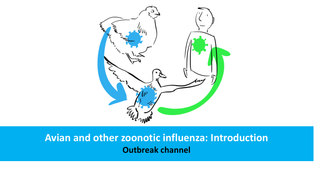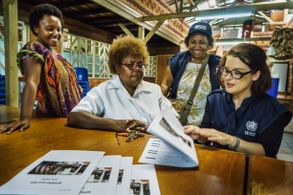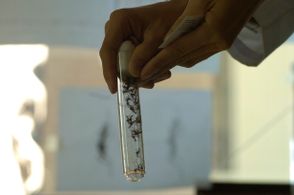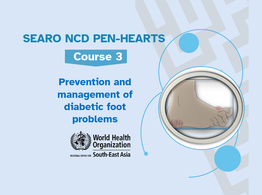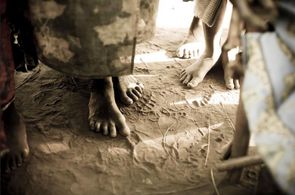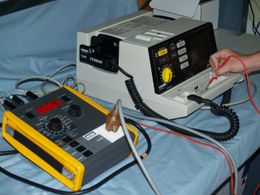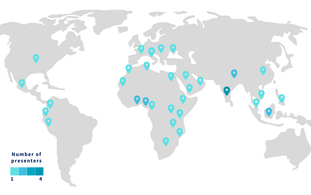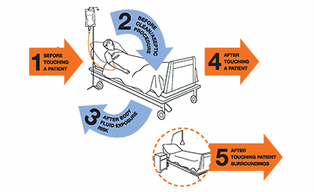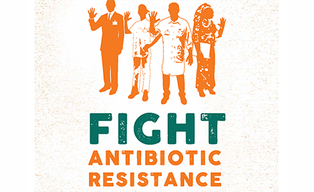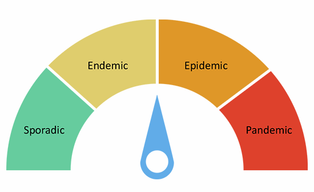
Recherche de cours...
Apprentissage indépendant
Animal influenza viruses are distinct from human seasonal influenza viruses and are not easily transmitted between humans. However, zoonotic influenza viruses – animal influenza viruses that can oc...
- En mode autodidacte
- Influenza
- Attestation de réussite
- en
In 2017, the WHO added sporotrichosis to the list of neglected tropical diseases. Sporotrichosis is a primarily cutaneous or lymphocutaneous disease that affects humans, cats, and other mammals. It...
- En mode autodidacte
- NTD
- Attestation de réussite
- en
Health workers who clean health care facilities are the first line of defence against health care-associated infections (HAIs) and support efforts to reduce antimicrobial resistance (AMR).
Strengt...
- En mode autodidacte
- Health topic
- Confirmation de participation
- en
Dengue is a viral infection caused by the dengue virus (DENV), transmitted to humans through the bite of infected mosquitoes. An estimated 100-400 million infections occur each year. This course pr...
- En mode autodidacte
- , Current outbreaks
- Attestation de réussite
- en
Diabetic foot problems are amongst the most common, costly and severe complications of diabetes. Diabetic patients are at a high risk for lower limb amputations resulting in higher health care cost...
- En mode autodidacte
- Attestation de réussite
- en
In 2017, the WHO added chromoblastomycosis (also called chromomycosis) to the list of neglected tropical diseases. Chromoblastomycosis is a chronic, progressive fungal infection of the skin and sub...
- En mode autodidacte
- NTD
- Attestation de réussite
- en
Medical equipment powered by mains sources must be evaluated regarding electrical safety parameters to protect patients and healthcare providers. This course provides methods for evaluating electri...
- En mode autodidacte
- Health topic
- Confirmation de participation
- en
The OpenWHO team organized an online exhibition and experience-sharing event on 12 & 13 July 2023, showcasing how learners have used WHO’s free OpenWHO.org learning platform to protect public healt...
- En mode autodidacte
- Health topic
- en
Screening areas in healthcare facilities and dedicated treatment centres are essential components for ebola and marburg outbreak preparedness, readiness and response.
In this course, we will expl...
- En mode autodidacte
- Ebola, Marburg
- Attestation de réussite
- en
The use of central and peripheral venous catheters are commonly used in health care delivery worldwide. When these devices are used, there remains risks posed to patients for the development of blo...
- En mode autodidacte
- Health topic
- Attestation de réussite
- en
Antimicrobial resistance (AMR) is a major threat to health and human development, affecting our ability to treat a range of infections. Treatments for a growing number of health care-associated inf...
- En mode autodidacte
- Health topic
- Attestation de réussite
- en
Outbreaks are unfortunate events that afflict both patients and staff as well as the cost of health care. In this course, you will learn how to identify and investigate outbreaks, the importance of...
- En mode autodidacte
- Health topic
- Attestation de réussite
- en
Une erreur s'est produite lors du chargement des cours supplémentaires. Veuillez réessayer plus tard.
Inscrivez-vous à cours
Avant que vous ne vous inscriviez à ce cours, vous devez lire et accepter la clause de non-responsabilité du producteur du cours.
